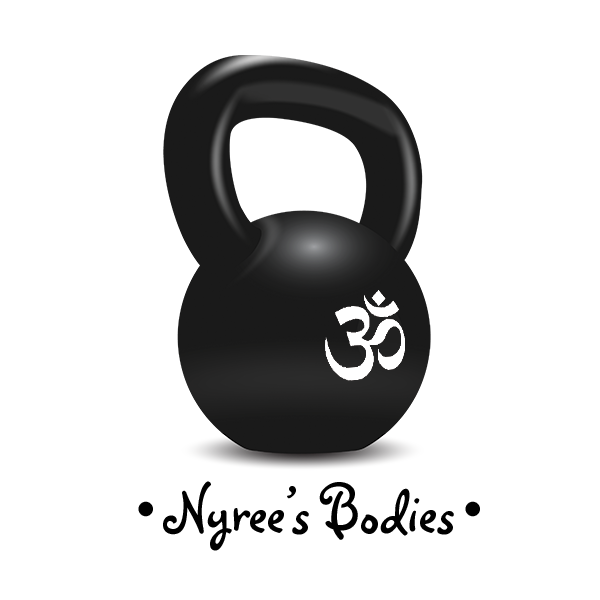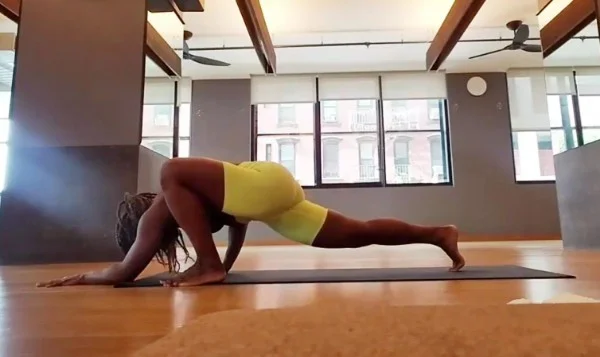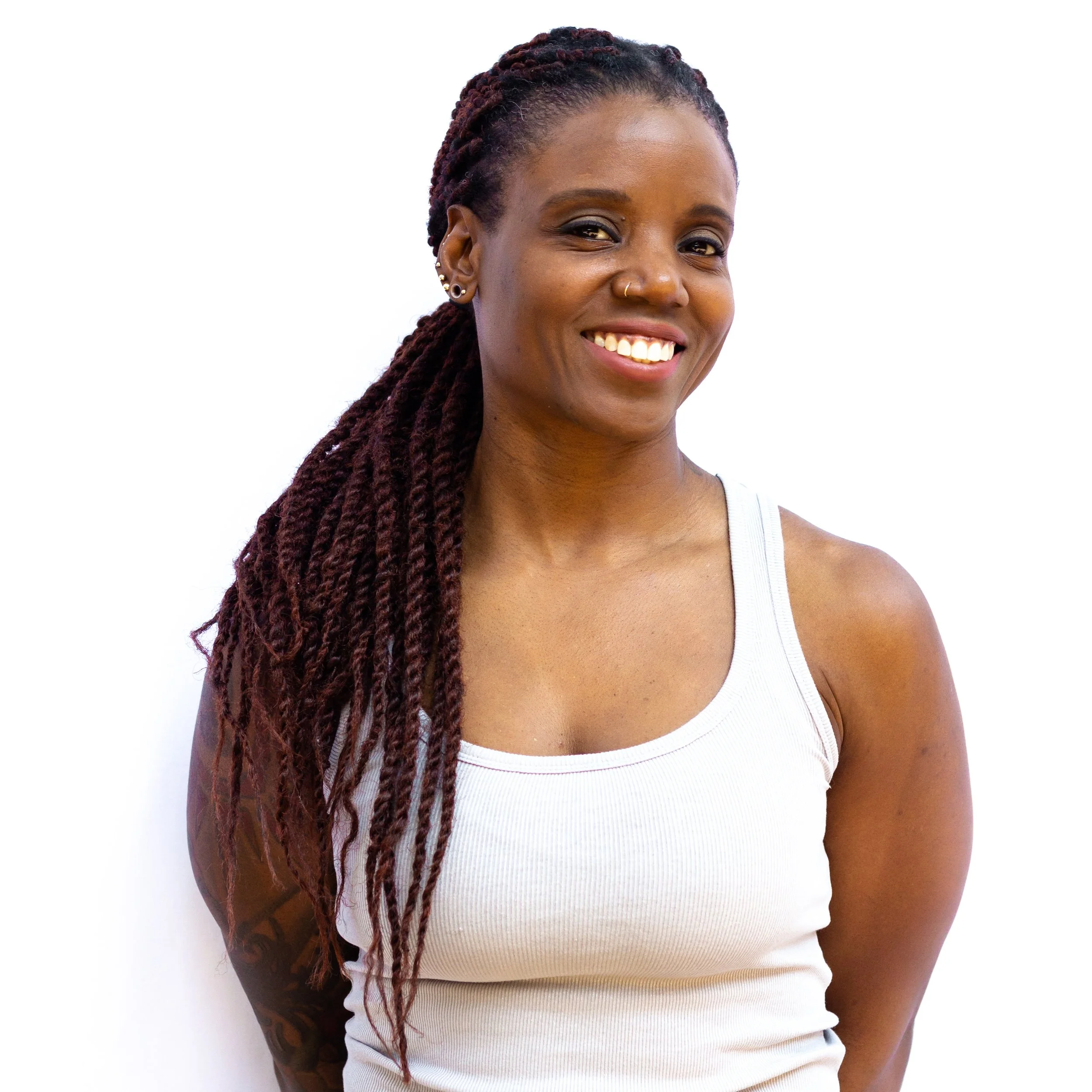Your Custom Text Here
So, You Wanna Do Yoga; Advice From A Former Yoga Newbie
I am considered an unconventional yoga teacher, possibly because I started out as a bodybuilder. For many years I performed West African dance in Harlem based dance company, then got into bodybuilding, which eventually lead to a very tight muscly body. This inspired me to begin practicing yoga in addition to my lifting heavy things. I guess due to my unique yogi beginnings, I am often asked how to begin practicing yoga, by those who come from backgrounds like mine and those who are just plain nervous about the whole yoga thing. We have all read about the benefits of yoga, how good yoga is for our bodies, minds and souls, while simultaneously being inundated by images of contortionist in yoga poses. on social media. For the beginner, these images represent what they think yoga is; a practice for people who are already incredibly flexible and/or strong. This is far from the truth. While I do know some who started practicing yoga already flexible, they were not necessarily strong or vise versa. The practice of yoga can accommodate ALL. I started out very strong, not flexible at all. However, what I deemed strong was a different kind of strong, I have noticeably increased my flexibility and mobility through my years of practicing and I’m very new to the practice still. So, from a relatively new yogi who was once a beginner, to the yoga curious, nervous and/or intimidated, here’s some advice to get you practicing.
First, why do you want to do yoga? Like most new ventures, we need to have a reason as to why we want to do it. It’s like joining a gym because your partner says you should do it for your health but when you do, you hate it and everything about it then quit all together. Identify for yourself you why you want to do this. It could be for the most base reasons. Honestly, I started yoga because I thought it would be cool to be flexible. Years of heavy lifting and no stretching in my 20s/30s lead to increased tightness and mobility issues. I have also suffered from back spasms most of my life noticing the reduction in my mobility coincided with an increase in spasms; some of which keep me immobilized for days. As I got older and more knowledgeable, my reasons for practicing changed, but initially being able to put my leg behind my head is what motivated me. (I still can’t do that by the way.) Identifying what will motivate you to take up this practice is essential to sustain your practice. Yoga is a continuous and to obtain the benefits, a level of commitment is required.
Secondly, once you’ve decided why you want to practice, find a good place to start. In my humble opinion, that place IS a yoga studio and NOT a health club. I teach at one of the best health club chains in the country. I also teach at a yoga studio chain, so I have experience with and can offer perspective on both.
Here's my analogy. Health clubs are like your supermarkets and the yoga studios is your specialty shop. You can get all kinds of food at the supermarket, but if you’re in the market for a particular cut of beef imported from wherever, the supermarket would not be your first choice. A health club is your supermarket, a yoga studio is that specialty butcher on the other side of town. In a health club, you have access to all kinds of fitness offerings, from your weight lifting areas, to the cardio machines, and your fitness studio and yoga classes. This allows for health clubs to cater to a wider audience and in turn bring in more people. “So, you have no interest in lifting weights? Allow me to offer you classes instead.” A yoga studio offers primarily a variety of yoga classes with sprinklings of fitness classes like barre or pilates. “So, you're interested in yoga? Great! What type are you interested in? We offer beginner to advanced, Iyengar to vinyasa.” For the newbie, this is where you want to be. Let me use a fitness example. You’ve decided you want to be a mixed martial artist or MMA. Where are going to train for that? To your health club?! Your health club offers kickboxing classes that are choreographed to the beat of some really good music. You taking those skills into the octagon?! OR… are you going to a boxing gym or a martial arts studio to develop your skills because that’s what they do? This is the same approach you should take when starting to practice yoga. Yoga classes at most health clubs are not designed for newbies and mainly offer classes that will attract the most participants, which in most cases are not beginner classes. Health clubs generally offer mainly generalized vinyasa yoga in various forms (power, alignment flow, etc) because at the moment, the masses want vinyasa (a flowing or continuous movement yoga form accompanied by breathing techniques. It’s what the cool kids take.) Also, when beginner classes are offered at health clubs, they are few and far between and at less desirable hours. In comparison, yoga studios offer all levels, at all hours, all the time as well as a variety of yoga styles, giving practitioners the opportunity to choose which form they prefer and allowing for deeper study into that form. What’s most important about beginning and foundational yoga classes, beginners are taught to use props such as blocks and straps and how to modify postures if necessary and learn posture variations which make practicing fun. Once a yoga foundation has been established, in most cases you will be able to take any class (even the ones in the health club), safely. A safe practice is a sustainable practice.
Next on my list is the studio’s vibe. When searching for your yoga home, look for an atmosphere that will get you in the building day after day. It could be demographics, it could be gender, it could be the price point (yes price point can lead to a vibe) etc. I have tried various studios and the energy is EVERYTHING! I’ve loved the space and hated the teachers. I’ve loved the teacher and hated the students. If you don’t vibe with the space, your practice will suffer which in turn will eventually turn you off to practicing all together. You need to want to walk into that building. Take advantage of studios that offer a free class or week of yoga to try the studio or check out Class Pass or Groupon for deals, travel around and sample a variety of classes and studios and see how you feel during and after the experience. If you like it, that may be your new yoga home.
Lastly, short and sweet, where is your studio? Location, location, location, right? The distance to and from your chosen studio is important. If it feels like work to get there, you’re not going to go there. I’m relatively lazy when it comes to these things. I live in Brooklyn and won’t travel past Chelsea to do most things. Anyone living in the city knows what I’m talking about. Luckily for me, I have found quality offerings, at most, 30 minutes from my door.
After so many years of practice, I know just how important has been to my overall wellness and regularly encourage everyone I know to start. I am a movement practitioner, and in my late 40s, my primary initiative is to move well for as long as possible. I have no intention to stop lifting heavy things as I find strength sexy as hell. However, I want to move my sexy freely, uninhibited and for many more years to come. Practicing yoga has aided in this endeavour. I hope to see you practicing in your favorite yoga studio soon! Namaste!
The Diet Industry Is NOT The Wellness Industry
The Diet Industry is NOT the Wellness industry - A Rebuttal to Smash the Wellness Industry published in The New York Times
Recently, I had a discussion with one of my female personal training clients about her progress on the whole30 diet and why she decided to do it again. Whole30 is an elimination-style diet which asks dieters to ban all soy, dairy, grains, alcohol, legumes, and added sugars from their diet for 30 straight days. Stating she was trying to maintain her current weight and to possibly lose a little more and that she felt much better overall while on it, she’d mentioned reading an article in the New York Times called "Smash the Wellness Industry" which made a claim saying “The wellness industry IS the diet industry”. She recommended it, saying how she thought it was really good. Mind you, when any of my clients recommend articles that are fitness or wellness related, I take it with a grain of salt. Ok. What I actually do is roll my eyes and say "yeah sure, I'll read it" then don't. I’m often encouraged to read what I’ve found to be hokey "fitness" articles written by fitness or wellness adjacent authors that are to say the least, suspect. However, this one was in the NY Times, which gave it credibility, not knowing at the time that it was an opinion piece. So, I read it and got angry. Then, I read it again for clarity where I became angrier. NY Times? What in the name of journalism and wellness?!
Initially, I had intended to write a rebuttal opinion piece, skewering the author and refuting in the strongest terms how off her perspective was ,while calling out The Times for printing something I felt could be damaging toward the wellness industry and would deter those interested in making lifestyle changes and improvements on the path to wellness. However, I thought about all the others who may also equate diet as wellness, not fully appreciating what wellness really is and its benefits.
Wellness as defined by The National Wellness Institute is, “an active process through which people become aware of, and make choices toward, a more successful existence.” A pretty broad definition, I know. They list 6 dimensions of wellness; social, emotional, spiritual, occupational, intellectual and physical. Environmental was listed as a seventh by the University of California, Riverdale. Wellness is the integration of these constructs to ultimately contribute to one’s quality of life. Diet, used as a noun or a verb, carry different intents. As a noun, diet is defined as food and drink considered in terms of its qualities, composition, and its effects on health or as a particular selection of food, especially as designed or prescribed to improve a person's physical condition or to prevent or treat a disease. When used as a verb, diet is the regulation of food, to limit the amount one eats to improve one's physical condition or to lose weight. Diet addresses weight and nutrition while wellness encompasses diet to address healthy body weights and eating habits. The body mass index (BMI) is the standard metric used to measure total body fat and whether a person is a healthy weight as a marker and uses diet to achieve that goal. The author's claims that wellness is diet plays into "skinny girl culture" or the emphasis on being skinny not necessarily healthy and having extremely low body fat, is harmful and can be as harmful as having excessively high body fat ratios.
Suggesting that wellness is diet, seems to indicate more than just a lack of understanding but a deeper issue from which her conclusions that spawned the original opinion piece were drawn. Speaking of her own personal battles with eating disorders which are not only about the achievement of thinner bodies through food restrictions in some way, but is the physical manifestation of a deeper internal struggle, directly relating to the emotional, intellectual as well as physical dimensions of wellness requiring a focus on the road to wellness. The treatment of eating disorders begins with understanding the ways in which an individual relates to food along with their beliefs based on socio-cultural norms of personal appearance and beauty amongst other things. I am assuming the writer is part of the majority and not a minority, Please call me out if I”m wrong. But I don’t think I’m wrong. As a black woman, I have never had this kind of perspective. Sure, I have at times wanted to lose weight and haven’t been happy with my appearance and I am not suggesting black people do not suffer from eating disorders. However, as a community, our ratios of eating disorders are much lower, as having some meat on our bones is seen as a good thing. To that respect we have our own issues with wellness which can fill a whole other article.
Weight related insecurities and diet talk, as suggested in the original article, is not gender specific as suggested by the author when she “ gazed around the restaurant, longingly, wondering what the men eating cheeseburgers were talking about.” *eye roll. The food conversation is held by men and women and I am associated with many who, when going out to eat, question what and how the meal they order will affect the weeks workout goals. Does she not associate with any men? Working in the fitness industry I see it all the time; the mirror selfies with the shirt pulled up, the inbetween sets waist pinch to the overheard conversations of what to eat after the workout or what not to eat because we’re heading to the beach this weekend. Diet as regards to eating as only a woman thing is ridiculous.
It is so unbelievably infuriating when fitness and wellness articles are written by authors with no education in or around wellness and its dimensions. She claims to have worked in wellness for a time, which makes it even harder to believe the original could have been written by that same person. As someone working and studying in the fitness and wellness field for over 25 years, we battle daily for legitimacy and respect for our work with the population at large. Sure, wellness has its hackneyed BS salespersons offering up the next best and greatest ways toward fitness perfection. Every industry has some of that. Today, my industry is inundated with “influencers” and' “experts” who share with their thousands of followers on social media loads of things I see in the toilet after a good bowel movement coming through mouths on pretty faces and tight bodies, with barely a national fitness certification amongst them. It does our industry a disservice when well read publications give legitimacy to people without related education or proof to support the opinion. It's ok to discuss a topic and state opinion when it is build on a factual foundation. Not understanding that wellness is an umbrella under which diet is a part, should be an immediate disqualification for publication.




